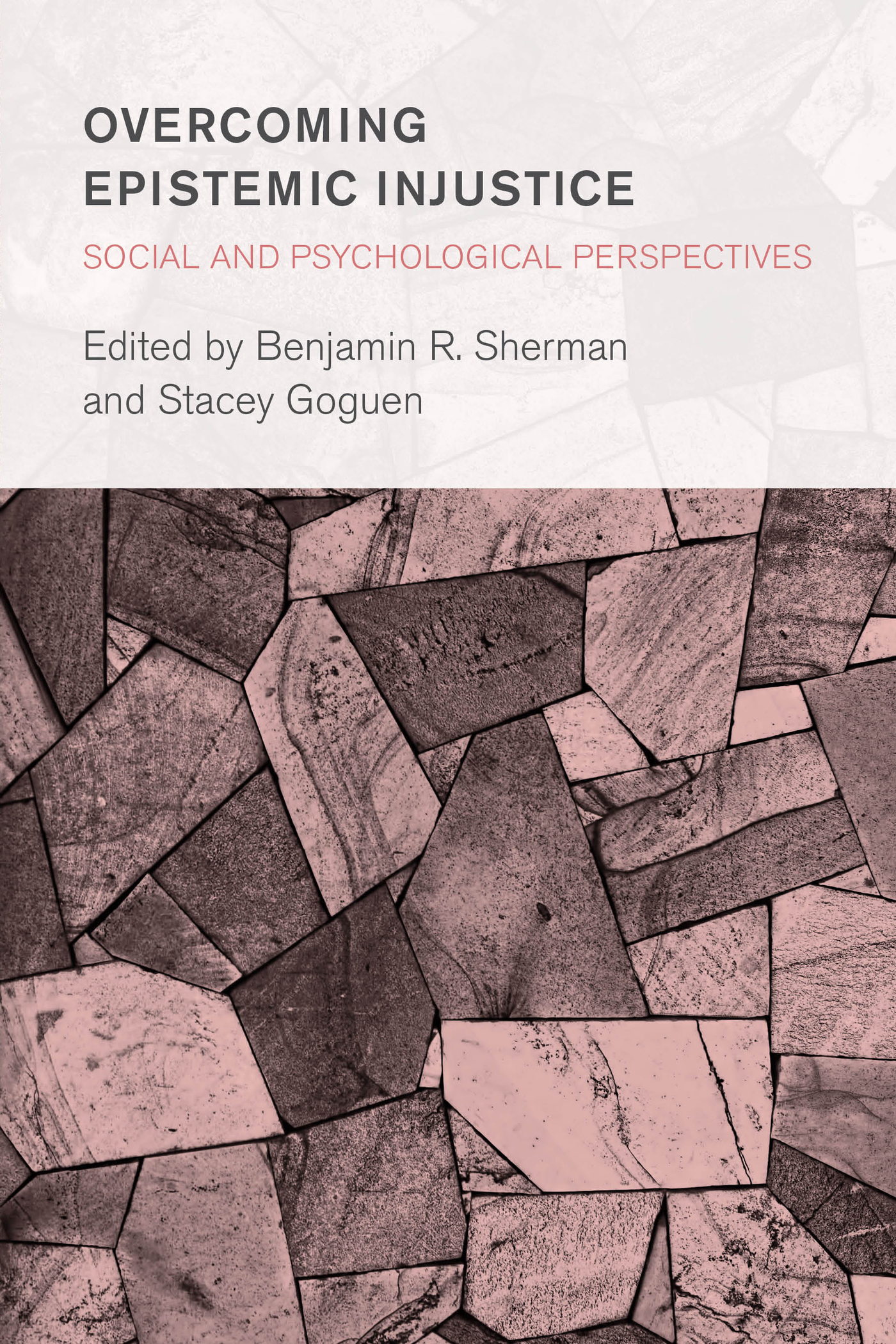Overcoming Epistemic Injustice
Collective Studies in Knowledge and Society
Series Editor: James H. Collier is Associate Professor of Science and Technology in Society at Virginia Tech
This is an interdisciplinary series published in collaboration with the Social Epistemology Review and Reply Collective. It addresses questions arising from understanding knowledge as constituted by, and constitutive of, existing, dynamic, and governable social relations.
Titles in the Series
The Future of Social Epistemology: A Collective Vision, edited by James H. Collier
Social Epistemology and Technology: Toward Public Self-Awareness Regarding Technological Mediation, edited by Frank Scalambrino
Socrates Tenured: The Institutions of 21st-Century Philosophy, Robert Frodeman and Adam Briggle
Social Epistemology and Epistemic Agency, edited by Patrick J. Reider
Democratic Problem-Solving: Dialogues in Social Epistemology, Justin Cruickshank and Raphael Sassower
The Kuhnian Image of Science: Time for a Decisive Transformation?, edited by Moti Mizrahi
Taking Conspiracy Theories Seriously, edited by M. R. X. Dentith
Overcoming Epistemic Injustice: Social and Psychological Perspectives, edited by Benjamin R. Sherman and Stacey Goguen
Heraclitus Redux: Technological Infrastructures and Scientific Change, Joseph C. Pitt (forthcoming)
Minority Report: Dissent and Diversity in Science, William T. Lynch (forthcoming)
Overcoming Epistemic Injustice
Social and Psychological Perspectives
Edited by
Benjamin R. Sherman
and Stacey Goguen

London New York
Published by Rowman & Littlefield International, Ltd.
6 Tinworth Street, London SE11 5AL
www.rowmaninternational.com
Rowman & Littlefield International, Ltd. is an affiliate of
Rowman & Littlefield
4501 Forbes Boulevard, Suite 200, Lanham, Maryland 20706, USA
With additional offices in Boulder, New York, Toronto (Canada), and London (UK)
www.rowman.com
Copyright 2019 by Benjamin R. Sherman and Stacey Goguen
Copyright in individual chapters is held by the respective chapter authors.
All rights reserved. No part of this book may be reproduced in any form or by any electronic or mechanical means, including information storage and retrieval systems, without written permission from the publisher, except by a reviewer who may quote passages in a review.
British Library Cataloguing in Publication Information
A catalogue record for this book is available from the British Library
ISBN: HB 978-1-78660-705-8
ISBN: PB 978-1-78660-706-5
Library of Congress Cataloging-in-Publication Data Available
ISBN: 978-1-78660-705-8 (cloth : alk. paper)
ISBN: 978-1-78660-706-5 (pbk. : alk. paper)
ISBN: 978-1-78660-707-2 (electronic)
 TM The paper used in this publication meets the minimum requirements of American National Standard for Information SciencesPermanence of Paper for Printed Library Materials, ANSI/NISO Z39.48-1992.
TM The paper used in this publication meets the minimum requirements of American National Standard for Information SciencesPermanence of Paper for Printed Library Materials, ANSI/NISO Z39.48-1992.
Acknowledgments
The editors would like to thank Jim Collier for his support and inspiration in getting this volume started; Isobel Cowper-Coles for seeing it through its approval; Natalie Linh Bolderston for her help and guidance in getting it completed; and all of our contributors for their fantastic work.
Ben Sherman would like to thank Miranda Fricker for inspiring him to look at ethics, epistemology, and prejudice in new ways; Sally Haslanger and the MIT Workshop on Gender and Philosophy for encouraging early work in this direction; Mark Alfano, Lacey Davison, Daniel Kelly, and Natalia Washington for being early commentators and suggesting exciting new directions; the Brandeis University Department of Philosophy for their continuing support; and Stacey Goguen for her advice, guidance, insight, hard work, and providing most of the knowledge capital in this project.
Introduction
The chapters collected in this book share a common motivation: all respond to certain kinds of injustice, and, more specifically, kinds of injustice that unfairly and unreasonably prevent the insights and intellectual abilities of vulnerable and stigmatized groups from being given their due recognition. These kinds of injustice are, of course, very old, even if their specific forms change over time, and talk in terms of epistemic injustice is new.
The problems that many now easily recognize as epistemic injusticeunjust credibility deficits, active ignorances, unequal power to label and describe the world, and so onhave been investigated and theorized by a wide variety of scholars in previous decades. We find these investigations in the countless discussions of silencing as a tactic of oppression, in W. E. B. Du Boiss discussion of the veil and double consciousness ([1903] 1994), in Foucaults discussion of labeling as an expression of power (e.g., [1963] 1994 and [1977] 1990), in Frantz Fanons articulation of psychic alienation (1967), in Marilyn Fryes notion of arrogant perception (1983), in Maria Lugoness articulation of the refusal of the privileged to world-travel (1987), in Gayatri Spivaks discussion of epistemic violence (1988), in Sandra Bartkys discussion of psychological oppression (1990), in Patricia Hill Collinss discussion of stereotypes as unjustly controlling images (1991), and in innumerable other conversations. Discussions at the intersection of ethics and epistemology more broadly have also have a longer history in analytic philosophy than some have realized. At least since W. K. Cliffords essay The Ethics of Belief ([1877] 1999) such philosophers have noted that it can be immoral to fail to seek out evidence that could overturn incorrect beliefs, and at least since Lorraine Codes Epistemic Responsibility (1987) it has been clear that effective truth-seeking requires a whole network of ethical commitments.
Miranda Fricker began using the term epistemic injustice in print in her 1998 paper Rational Authority and Social Power: Towards a Truly Social Epistemology, and the term gained much wider use after the publication of her celebrated 2007 book Epistemic Injustice: Power and the Ethics of Knowing. It has caught on in part because it helps to succinctly name kinds of wrongdoing that have become more evident since weas a society and an academic disciplinehave become increasingly concerned about identity prejudices, and the harms they cause.
Epistemic injustices are simultaneously ethically wrong and epistemically unreasonable, and Frickers term helps to highlight the close interrelation between the ethical and the epistemic, in at least the two following ways:
1. While injustices typically involve harming someones interests in some way or other, epistemic injustices more specifically involve harming people in their capacities as knowers. Identity prejudices frequently lead to marginalized people being treated as less credible than they really are. This leads to a range of unjust harmspeople marginalized this way are likely to receive lower pay, receive less social prestige and the power that goes with it, and may face structural legal disadvantages. But, in a more direct and fundamental way, underestimating someones credibility denies them the intellectual authority they

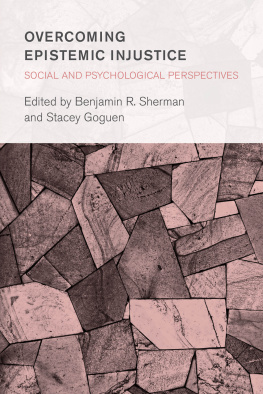

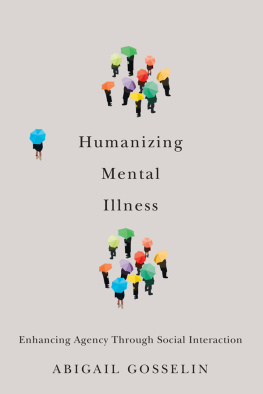

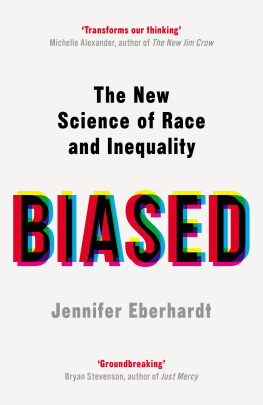

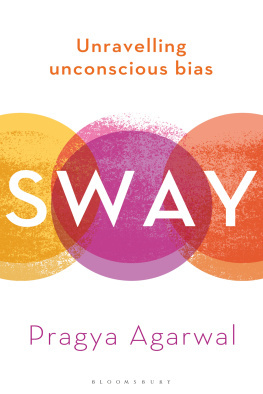

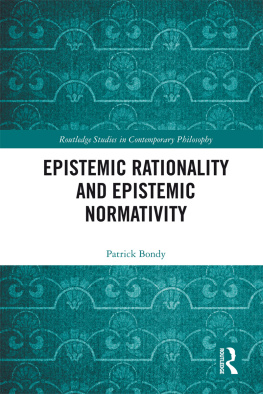


 TM The paper used in this publication meets the minimum requirements of American National Standard for Information SciencesPermanence of Paper for Printed Library Materials, ANSI/NISO Z39.48-1992.
TM The paper used in this publication meets the minimum requirements of American National Standard for Information SciencesPermanence of Paper for Printed Library Materials, ANSI/NISO Z39.48-1992.